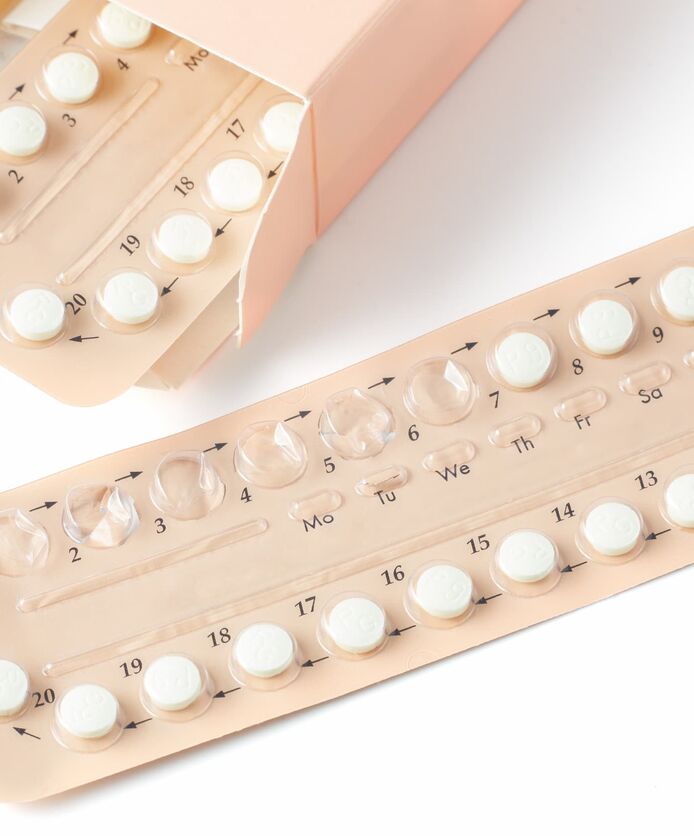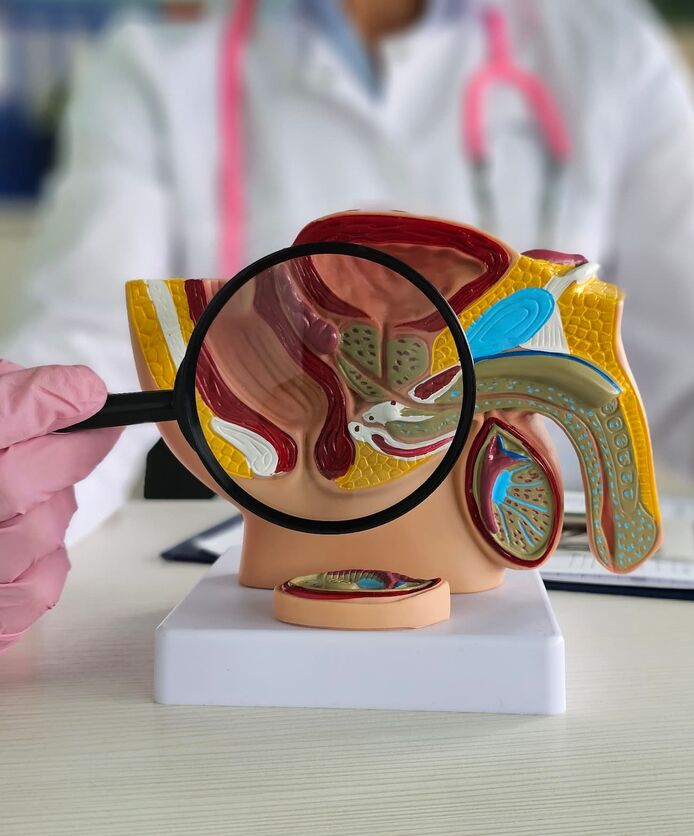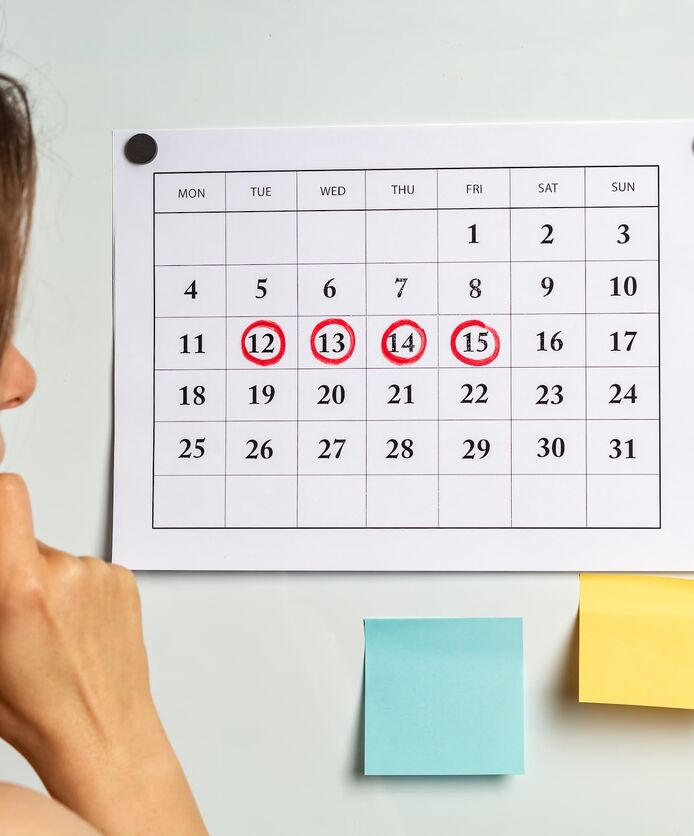Why is my period late?

If you typically have regular periods, then having one that is out of sync or missing a period altogether can be alarming. Knowing the potential causes of a late period can help you to understand what to do, including whether you need to speak to a pharmacist or GP. Keep reading to learn more.
What can make your period late?
It’s normal to have some degree of variation between cycles, so you may find that your period comes a few days later or earlier than expected most months. Keeping a record of when your period comes can help you to see patterns in your cycle and be prepared around the time you expect your period to start.
Remember, different people experience periods in different ways. It’s not necessarily the case that something is wrong with you just because your period is different compared to that of a friend. Keeping track of your period also helps you to understand what’s normal for you, so you can take action if things change unexpectedly.
Below, we discuss a range of factors that could cause a missed or late period.
Pregnancy
In films and TV shows, if a woman misses her period, she’s almost certainly pregnant, which probably goes some way to explain why it’s so common to assume the same if your period is late. It’s true that a missed period can be one of the early signs of pregnancy, so if you think it’s possible that you’re pregnant, it’s worth taking a pregnancy test to be sure. However, it’s important to be aware that pregnancy isn’t the only possibility.
Breastfeeding
For women on the other side of pregnancy, your periods can take a little time to get back to a normal routine after childbirth. Women who breastfeed typically find their periods come back later than those who opt to feed with formula milk - this is linked to the levels of hormones in your body.
Once your periods do return, it’s common for them to be a little irregular at first. They might come late or skip a few months between cycles. This is to be expected, but if your post-childbirth periods are concerning you at all, you should speak to your healthcare team for advice.
Extreme exercise routines or diets
Another thing that can cause your periods to stop temporarily is extreme weight loss, often caused by excessive diets or exercise regimens. However, sudden weight loss can be caused by other factors such as illness as well, so you should speak to a healthcare provider if you’re experiencing sudden, unexplained weight loss.
Why does weight loss affect your period? Well, in extreme cases, you might not be getting enough nutrients to allow your body to produce the hormones needed for the normal functioning of your menstrual cycle. In essence, whether you’re burning too many calories or not taking in enough, your body doesn’t have enough fuel to do everything it needs to, so it prioritises vital processes first and allows other things like reproduction to stop temporarily.
If this affects you, it’s likely that your periods will return once you’re eating enough and exercising in a healthier way. Your GP or pharmacist can help you to manage your weight safely in the future.
Polycystic ovary syndrome (PCOS)
Having an underlying medical condition such as PCOS could result in having irregular periods or not having periods at all. PCOS is a hormonal condition that affects the way your ovaries work and may cause other symptoms such as:
● Acne
● Weight gain
● Excess hair loss or hair growth (hirsutism)
● Difficulty in getting pregnant due to irregular ovulation.
If you think you may have PCOS, you should speak to your GP to discuss getting an official diagnosis and the treatment options to alleviate the symptoms. Currently, there is no cure for this condition, but it can be managed to allow you to get on with your everyday life.
Major stress
Emotional or mental stress can cause an interruption to your normal menstrual cycle, which may present itself as a missed or late period - something which can, in turn, create more stress.
Usually, when we talk about stress in this sense, we don’t just mean having one stressful week. In order to have an impact on your period, you’d need to be under high levels of stress for a prolonged period of time. However, it’s important not to underestimate the effects of the stressors in your life. While a single event may not seem very stressful alone, it could contribute to an overall higher stress level if combined with other stressors, particularly if you aren’t dealing with your stress effectively.
If you think stress could be affecting your menstrual cycle or any other aspect of your health, it’s good to find ways to relax and decompress within your routine so you can feel less overwhelmed. Self care measures can be helpful in doing this, but you can also reach out to a pharmacist or your GP if you feel you’re struggling to deal with stress and may need help.
Hormonal contraceptives
The menstrual cycle is ruled by a group of hormones, many of which are involved in ovulation and conception. Hormonal contraceptives work by interfering with the usual changes you experience during your cycle to prevent ovulation - but they can also have an impact on other aspects of your cycle, such as your period.
If your missed periods have begun since starting a new form of contraception, it’s possible that the new medication could be contributing to the problem. Speak to your healthcare provider about alternative forms of contraception that may be more appropriate for you if you’re concerned.
Thyroid conditions
If you have an underlying medical condition such as hyperthyroidism (also known as an overactive thyroid), it’s possible that this could be causing your late or missed periods. Other symptoms of an overactive thyroid include:
● Persistent thirst
● Needing to pee more often than usual
● Difficulty sleeping and fatigue
● Mood swings, anxiety and irritability
● Hyperactivity
● Being overly sensitive to heat and cold
● Diarrhoea
● Loss of sex drive.
If these symptoms sound familiar, that doesn’t necessarily mean you have an overactive thyroid. However, it’s worth getting yourself checked by a doctor in case there is a condition causing these undesirable side effects.
Being close to puberty or menopause
Finally, it’s natural for your periods to be more irregular than usual if you’re close to puberty or menopause. Young girls who have recently started their period for the first time often experience higher levels of irregularity which naturally settle down after a few cycles. Similarly, the hormonal changes brought on by the menopause can cause irregularity, which usually results in your periods stopping altogether.
There are many things that can cause your period to change unexpectedly, and many causes are innocuous or nothing to worry about. However, if your problem persists and you’re at all worried about your menstrual cycle, it’s always best to speak to a qualified medical professional to identify the problem and, if needed, access treatment.
Sources:
- https://www.nhs.uk/contraception/choosing-contraception/side-effects-and-risks-of-hormonal-contraception/
- https://www.nidirect.gov.uk/conditions/stopped-or-missed-periods
- https://www.nhs.uk/conditions/overactive-thyroid-hyperthyroidism/symptoms/
- https://www.nhs.uk/pregnancy/trying-for-a-baby/signs-and-symptoms-of-pregnancy/
- https://www.nhs.uk/conditions/missed-or-late-periods/
- https://www.healthdirect.gov.au/periods-while-breastfeeding
- https://www.nhs.uk/conditions/polycystic-ovary-syndrome-pcos/
- https://www.nhs.uk/conditions/irregular-periods/

Which contraceptive pill is best?

How to get rid of flu

What causes erectile dysfunction?

What are the symptoms of flu?

How to delay your period

